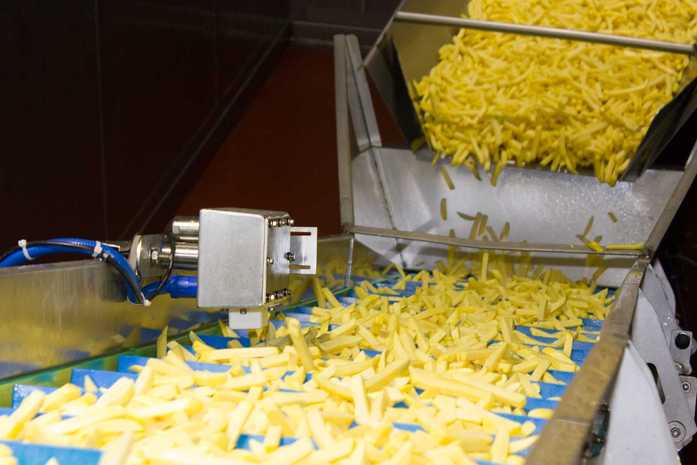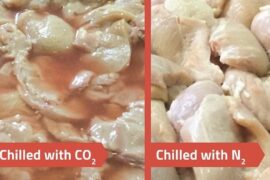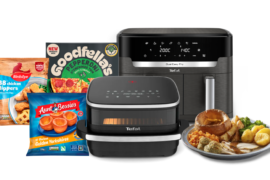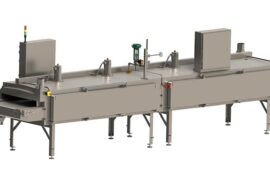GEA presented its award-winning Callifreeze® continuous freezer control system at IFFA, the international trade fair for the meat industry that ran from May 4-9 in Frankfurt, Germany.
The Düsseldorf-based food processing equipment company recently concluded tests proving the effectiveness of the system, which improves product quality and provides energy savings by automatically controlling and monitoring the condition of frozen products as they exit the freezer. Because it uses Aquantis sensors, frozen food processors can ensure accurate product quality control and avoid product wastage.
The system calibrates freezer parameters through the continuous measurement of a product’s level of frozenness (LOF). This allows retention time, air temperature and fan speed to be controlled so that the required and precise level of freezing can be achieved with minimum energy consumption. Callifreeze has the distinction of being the world’s first in-line system to autonomously monitor and control frozen product quality in this manner, helping users meet their Industry 4.0 strategies as well as their environmental targets.
Tests at Bergia Frites
The Callifreeze tests, which took place in January of 2019 at Bergia Frites, a frozen french fry manufacturer in Roermond, the Netherlands, were performed on 7mm x 7mm shoestring, 9mm x 9mm straight-cut and 13mm x 13mm crinkle-cut fries. The results prove that savings can be achieved when freezing french fries by increasing the evaporating temperature and via the continuous monitoring and control of the LOF conditions according to quality targets.
Operators of this Bergia Frites french fry processing line in the Netherlands are able to automatically control and monitor the frozen condition of product as its exits the freezer thanks to GEA’s sensor- equipped Callifreeze system.
The system was installed at the exit of the GEA IQF tunnel freezer to continuously monitor the LOF. GEA technology was able to measure the percentage of frozen water in a 80 to 120mm product layer conveyed from the freezer to the packing area. The evaporating temperature of the CO2 refrigeration installation, also provided by GEA, was controlled according to optimized settings defined by the Callifreeze system.
The results show that crinkle-cut fries are sufficiently frozen when the evaporation temperature is increased by three degrees Celsius (-33 C to -30 C) with the original retention time. For 7mm x 7mm straight-cut fries, the evaporation temperature could be increased by five degrees Celsius, which represents a 15% energy savings in refrigeration supply, without a reduction in LOF.
Taking into account the ability to increase the evaporation temperature by 3 C for crinkle-cut fries, for example, the reduced energy usage would result in savings of roughly €41,000 per year, for a company operating a 10 ton per hour plant, without affecting product quality. This would mean an 18-month return on investment (ROI) period for the equipment. For larger plants the savings would be even greater and the ROI much quicker. This level of energy reduction represents an important contribution to the sustainability of a plant and can make a significant contribution in reducing industry’s overall energy usage if applied globally.
It was also demonstrated that product LOF variation followed the same trend as product temperature. With continuous measurement and logging of product LOF, and the correlation between LOF and temperature, Callifreeze was shown to provide a solution for in-line product quality tracking. This significantly reduces the product waste often associated with batch systems operating via manual control.






